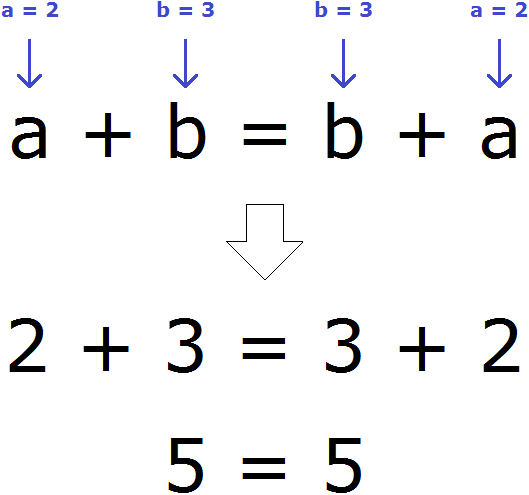Definition. The commutative law of addition says that it doesn't matter what order you add up numbers.
Indeed, add a five to a two and you get a seven. And vice versa, add a two to a five and you get a seven again:
5 + 2 = 7
2 + 5 = 7
If we put 10 kilograms of apples in one bag and put 10 kilograms of apples in other bag, bags will be equal, and it does not matter that the apples in the bags are mixed in a random way. If we take the bag from the scales and mix the apples in it like balls in a lottery bag, the bag will still weigh 10 kilograms. The sum will not change from rearranging the summands. The summands in this case are apples, and the sum is the total weight.
Thus, the expressions 5 + 2 and 2 + 5 can be equated. This would mean that their sum is equal:
5 + 2 = 2 + 5
7 = 7
We assume that you have learned one of the previous lessons, which was called expressions, so we will write down the commutative law of addition using variables:
a + b = b + a
This commutative law of addition will work for any numbers. For example, take any two numbers. Let a = 2, b = 3. We have assigned the variables a and b with values 2 and 3. These values will go into the main expression a + b = b + a and substitute where needed. Number 2 will be substituted for a, number 3 will be substituted for b

2. If you find an error or inaccuracy, please describe it.
3. Positive feedback is welcome.